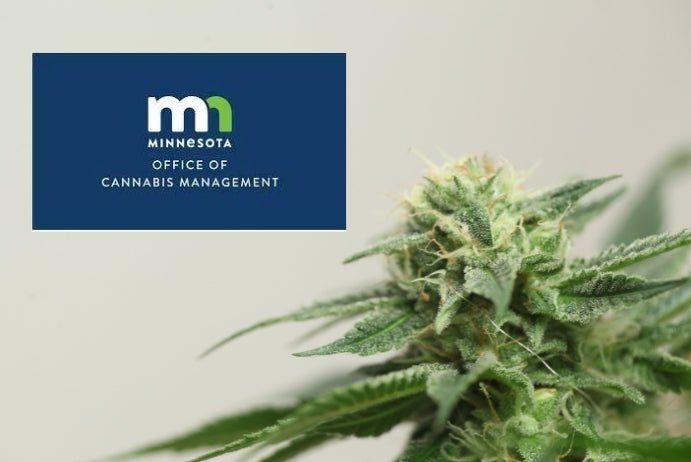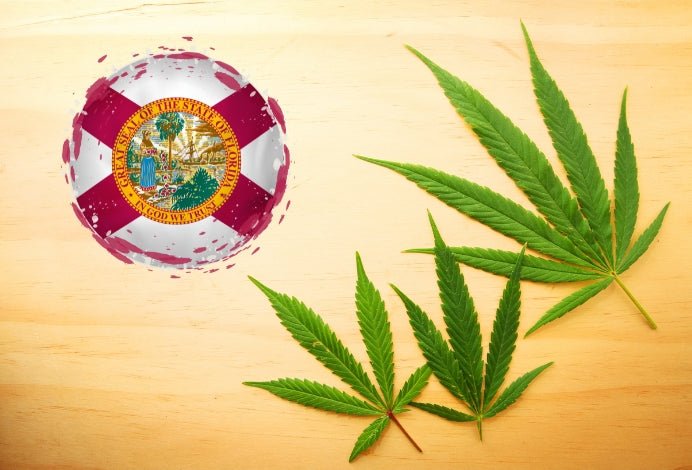After a failed attempt last Spring, several state legislators from both sides of the aisle are determined to hobble and diminish Florida’s popular and growing market.

Advancing progress on any issue, especially one concerning a once severely stigmatized and highly illegal drug, is never an easy process. Such is the case for the much-maligned and misrepresented hemp plant in the state of Florida.
When hemp was removed from the Controlled Substances Act (CSA) by the 2018 Farm Bill, aspiring cannabis-adjacent entrepreneurs quickly took advantage of the seismic change in federal policy toward the ancient flower, and hemp-derived products began to flood the market nationwide.
Much of the financial investment in and revenues from the sector initially centered on the production and sale of CBD (cannabidiol), which is made from the hemp plant. However, when the COVID-19 pandemic lockdowns effectively shut down the world for a period of close to six months, consumers began to purchase and consume much more significant amounts of hemp’s intoxicating sibling, cannabis.
The problem for a majority of Americans suffering through that unprecedented and psychologically crushing period was that many had no legal access to cannabis product offerings. To fill that void, hemp entrepreneurs began manufacturing and selling items containing intoxicating hemp derivatives or IHDs.
IHDs are the cannabinoids produced from hemp, like delta-9 THC (the most well-known of all cannabinoids) and the lesser-known delta-8 and delta-10 THC, that provide the “high” many people experience when smoking or consuming traditional marijuana. The main difference between IHDs and cannabinoids made from cannabis is the concentration level of delta-9 THC contained within each plant.
Cannabis and hemp are two parts of the same cannabis sativa plant. When lawmakers decided to take hemp off the CSA, they did so by defining it as any part of the cannabis sativa plant containing less than 0.3% THC. Any portion having more than that threshold amount is still classified as marijuana and illegal under federal law.
Unfortunately, as with any new industry, a scattering of medical emergencies, including one documented death (which is still under debate) of a toddler in Virginia in 2022, began to occur across the country. Never to be ones not to take advantage of a galvanizing and click-friendly issue, several opportunistic and disingenuous politicians started a crusade to crack down on IHDs in many states, most notably Florida.
Last April, a group of bipartisan lawmakers in the Sunshine State attempted to pass a measure to severely restrict the amount of THC in hemp-derived products. The bill’s sponsor, Manatee County Republican Will Robinson Jr., initially wanted to limit THC levels to no more than 5 MG per serving or 50 MG per package. The bill also would have prohibited any individuals under the age of 21 from buying those products.
However, following a month-long debate among state legislators, industry experts, and many passionate hemp business owners, Robinson decided to remove all caps on THC levels. During the decisive committee meeting debate, he finally relented to the pressure, saying, "All caps are O.U.T., Out."
Despite the excitement and enthusiasm at that moment for hemp advocates and stakeholders, many knew the issue was not dead. They had no idea how right they would turn out to be. Now, another anti-hemp legislative crusader is taking up Robinson’s banner and cause, and this time around, there may be no salvation for the burgeoning and battered industry.
Last week, as first reported by the Florida Phoenix, a bipartisan collection of lawmakers passed a new bill that once again places severe restrictions on the amount of THC contained within hemp-derived products.
Rolling out the same tired and cynical justifications of public safety concerns and a lack of scientific data, Polk County Republican Sen. Colleen Burton, who co-sponsored Robinson’s failed attempt last Spring in the Senate, pushed SB 1638 through the Senate Fiscal Policy Committee last week, moving the controversial measure to the Senate floor for a vote.
Much of Sen. Burton’s argument hinges on her claim that IHDs are a dangerous threat to the health and safety of Floridians, particularly children. During the committee hearing, several health experts testified about children ingesting the products and becoming ill despite the age restrictions enacted under Robinson’s initial bill.
While many hemp activists and business owners have said that no one has ever died from any overdoses related to IHDs, Burton clapped back by dramatically exclaiming, “Ladies and gentlemen, that is not true.”
She then revealed a 2021 document from the Medical Examiner’s Commission for the Florida Department of Law Enforcement that confirmed that “we Floridians who have died in Florida. The cause of their death was cannabinoids and synthetic cannabinoids.”
"We Floridians who have died in Florida. The cause of their death was cannabinoids and synthetic cannabinoids.”
- Medical Examiner’s Commission for the Florida Department of Law Enforcement
Despite not producing evidence that those cannabinoids came directly from hemp, Burton’s bill would cap THC levels in hemp offerings at two milligrams per serving and 10 milligrams per container. To many in the Florida hemp industry, this bill would effectively be the death knell for the beleaguered market sector.
However, there is still hope for the many business owners, employees, and consumers potentially impacted by the Senator’s measure. Orlando Democratic state Sen. Geraldine Thompson, one of only two committee members who voted against the bill, pointed out the impossible task of setting limits on an item by lawmakers who were largely in the dark regarding the appropriate dosage levels necessary to properly and fairly regulate IHDs.
“How do we know 1,000 milligrams of THC is particularly excessive? How do we know that 2 milligrams per serving is too little or too much? How do we know 10 milligrams per container is the right cap?” she asked.
"How do we know 1,000 milligrams of THC is particularly excessive? How do we know that 2 milligrams per serving is too little or too much? How do we know 10 milligrams per container is the right cap?"
- Democratic State Sen. Geraldine Thompson
While all committee members agreed that some level of regulation was necessary to ensure public safety and confidence in the industry and its product offerings, there was a distinct divide on exactly how much they should do to provide that peace of mind for Floridians.
However, destroying an industry that employs over 189,000 people and comprises close to 10,000 small businesses is not the correct approach, according to Democratic state Sen. Shevrin Jones, the only other committee member who opposed the measure.
“If we want to go after the bad actors, let’s go after the bad actors. But the fact that we’re going to blanket this right now that could potentially put many of these businesses out of business, I don’t think that’s what we want to do here today,” Jones said.
"If we want to go after the bad actors, let’s go after the bad actors. But the fact that we’re going to blanket this right now that could potentially put many of these businesses out of business, I don’t think that’s what we want to do here today."
- Democratic State Sen. Shevrin Jones
Burton’s bill will now head to the Senate floor for debate and a vote. However, the House companion bill (HB 1613) must still navigate through two more committees before potentially reaching that chamber’s floor.
In the meantime, hemp advocates and stakeholders will continue to lobby lawmakers to either quash the bill or revise it so that it does not decimate the young and very much-needed market sector.
The war is far from over, but this round definitely goes to the hemp opponents in Florida. The next few weeks will go a very long way in determining the ultimate success or failure of an industry full of healing, comfort, and promise for the millions of people who need and love that magical flower.








































